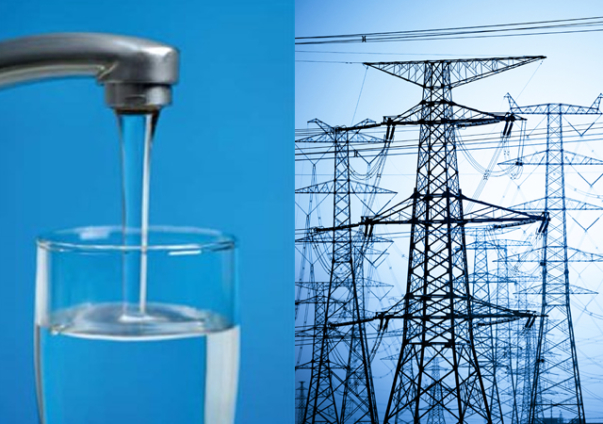Ghanaians may have to brace themselves to pay more for utility as tariffs are expected to increase.
According to a report by Daily Graphic, the upward adjustment of bills, once announced, will take effect on Thursday, September 1.
This will be the first review of utility tariffs since 2017.
This comes after the Public Utilities Regulatory Commission (PURC) had carried out nationwide consultations on proposals it received from the utility companies.
Daily Graphic reported that the new tariffs will not be across the board, which means the rates will depend on the reasons and proofs adduced by the utilities and the verification the commission has done.
It said the tariffs to be announced would exclude taxes and levies already imposed by the state.
The report also revealed that micro, small and medium enterprises (MSMEs), such as food joints and salons, would be protected from paying “punitive” tariffs.
In May 2022, the Electricity Company of Ghana (ECG) demanded a 148% increase in tariff.
The proposal from the power distributor, submitted to the PURC, wanted the adjustment to cover the period 2019 and 2022.
The company also proposed an average increase of 7.6% in tariff over the next four years to cover Distribution Service Charges (DSC).
On its part, the Ghana Water Company Limited (GWCL) also demanded a 334% increase in tariff. The GWCL in its proposal said over the years, the approved tariffs have not been fully cost-reflective.
The Volta River Authority (VRA) has also proposed 37%, with the Ghana Grid Company Ltd (GRIDCo) proposing 48%
Other proposals were 38% from the only private power distributor, Enclave Power, and 113% increase over the existing tariffs of the Northern Electricity Distribution Company (NEDCo).
Meanwhile, after receiving the proposals from the utility companies, the PURC conducted a survey in which 851 respondents across all 16 regions completed the questionnaire.
The survey indicated that 44% of respondents thought the current electricity tariffs were not proportionate with quality of service received from the electricity utilities.
They based their reason on the frequent voltage fluctuation and poor customer service delivery among other reasons.
On electricity tariffs, 42% of the respondents rated prevailing tariffs as fair, while 55% rated them as high.
Again, half of the respondents indicated that current water tariffs were not justified, given the poor service delivery in the form of frequent water supply interruptions.
Consequently, 41% of respondents rated prevailing water tariffs as fair, while 57% rated them as high.
Latest Stories
-
Overloading penalty increased to GH₵50,000 – Roads Minister
2 minutes -
WO II Patrick Dotse Gomashie
7 minutes -
Court of Appeal grants GH₵10m bail to William Ato Essien pending appeal
12 minutes -
Roads Minister vows sanctions for staff who approve payments for shoddy road projects
15 minutes -
JOYNEWS condemns assault and detention of reporter Carlos Calony by operatives in military uniform
24 minutes -
Finance Ministry approves recruitment of engineers to supervise roads – Kwame Agbodza
27 minutes -
Egypt hinders Quartet’s efforts in Sudan peace resolution
33 minutes -
Haruna Iddrisu secures groundbreaking partnership with Japenese government
35 minutes -
Every region has a ‘Big Push’ project – Agbodza rebuffs Minority claims
39 minutes -
Government to prioritise only budgeted road projects – Road Minister declares
42 minutes -
‘Big Push’ road projects to run on 24-hour schedule – Agbodza
44 minutes -
Nana Poku Ashis urges Charterhouse to organise national celebration for Daddy Lumba
46 minutes -
Ghana’s road network is in a deplorable state – Roads Minister Agbodza
53 minutes -
Kennedy Agyapong embodies discipline, Bawumia symbolises humility – Kwasi Kwarteng
57 minutes -
Era of indiscriminate road contracts over – Roads Minister Agbodza declares
1 hour

